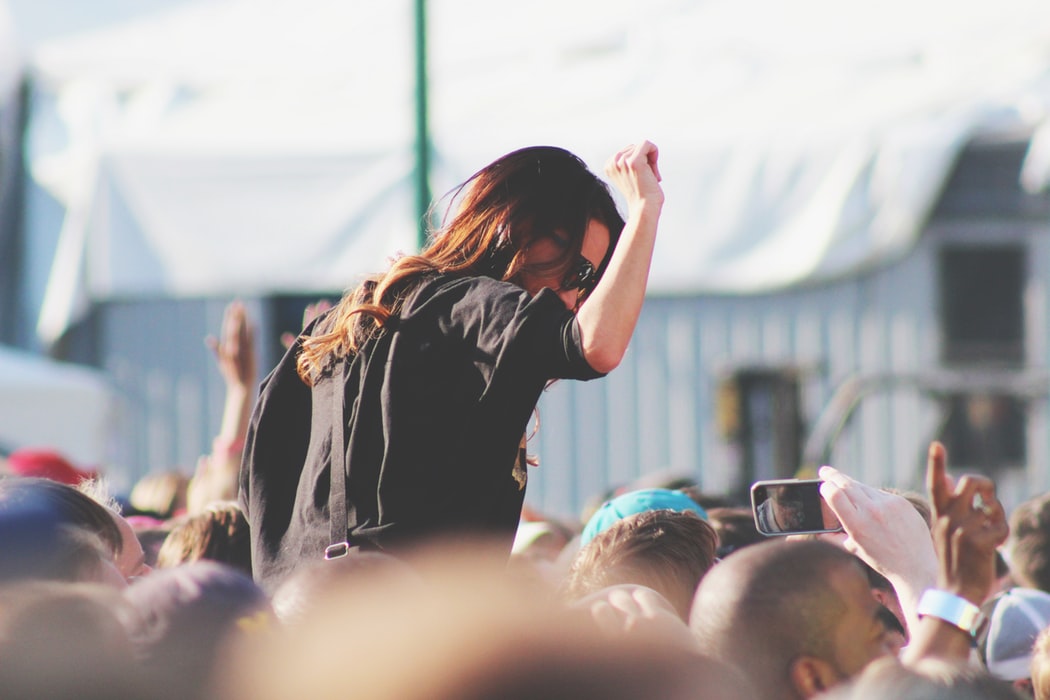Do you have an events website that is in need of an update? Or have a flourishing events business but not sure how to build a website? Then look no further! Here we are going to give you the best web design inspiration for your events website.
Often when businesses start creating a website they start with a website builder. Website builders are a great way of easily building a website for a low monthly price. Go Sitebuilder has a wide range of templates and design ideas to help you decide what is right for your event management website.
With technology becoming increasingly important in marketing events, having an up to date website is vital. In 2019 52.6% of event professionals increased their spending on technology, proving how important investing in technology is.
Large professional event website: Telegraph Events
Source: Telegraph Events
This beautiful website is for events hosted by the Telegraph. The layout is simple and easy to navigate using a header as the main navigation tool. The use of dark colours and white writing creates a striking web design. The use of the large picture below the header gives a sense of the type of events they hold as soon as you enter the website.
Foodie festival: The Big Grill Festival
Source: The Big Grill Festival
This bright web design is extremely effective at communicating the spirit of the event and clearly showing what the event is about. The cartoons at the top of the homepage show music, chefs, drinks and bright colours. The simple header allows visitors to easily navigate around the website and simple icons for each social media platform is also very effective.
Music Festival: Coachella
Source: Coachella
As one of the biggest festivals in the world Coachella has a professional well designed website. The image above is what the homepage looks like once the headings are clicked. As you can see the menu then drops down and there are simple headings to follow.
However, what is really effective is the small drawings that accompany each menu dropdown, this one being sunglasses. The subtle colours and minimalist design create an aesthetic that matches what you envision when you think of coachella.
Conference event: Circles Conference
Source: Circles Conference
This homepage for Circle Conference is highly effective and creates a significant impact on the visitor. Immediately you are struck by the bold blue colours and large writing. All the key information is displayed on the homepage, giving a date for the event and the type of conference. Although the menu is somewhat hidden, the two lines in the left hand corner indicate there is more to find out.
Best use of colours: Image Festival
Source: Image Festival
This bright bold design is slightly different from those mentioned before. This website for an art festival in Rotterdam has a creative slightly vintage feel, with pastel shades and a typewriter style of font. Although the website is slightly crowded with information the menu is clear and the side bar allows more information to be shown.
Key points to think about for your event website:
So now that you have seen some great examples of web design for events websites you may be thinking about designing your own or updating a current website. Before you do, consider the following points:
- What style of website do you want? – a minimalist approach or more content on the homepage.
- Make sure visitors to your website know immediately what kind of event you are holding.
- Consider the fonts and colour scheme – these must match with the aesthetic of your event and also show visitors what kind of event you are having. Take a look at our blog on how to make your website more visually appealing.
- Consider what kind of photographs/drawings you want to showcase your event.
- Ensure you have all the key information on your website and that visitors can find the information easily.
- Find a website builder that is easy to use and has a wide range of customising options.
For more information, check out our blog on how to create a successful events website.
If you are ready to start building your events website, then look no further than Go Sitebuilder. With a wide range of features including a range of design templates, our simple website builder design means you can have a professional looking website up and running in minutes. Try our 14-day free trial today!



